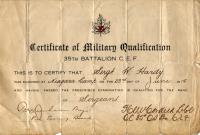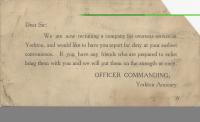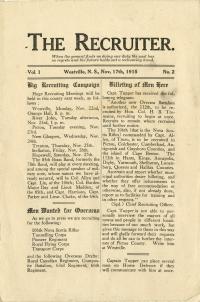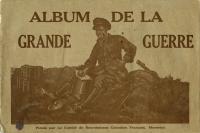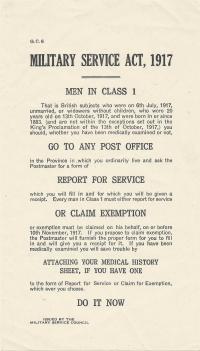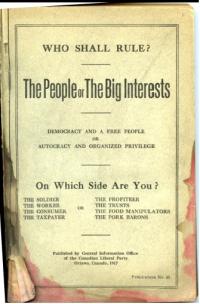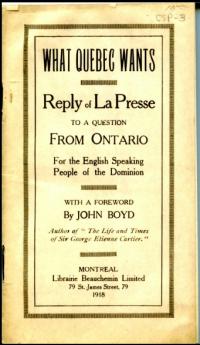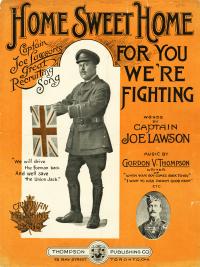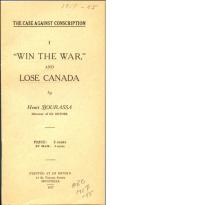Fighting
Your New Sergeant
This certificate indicates that William Hardy, a carpenter from Toronto, officially qualified as a Sergeant on 23 June 1915.
Bring your friends and enlist
When voluntarism slowed down in late 1915, units resorted to many tactics - including direct mail campaigns like this one - to attract potential recruits.
"In the interests of recruiting"
The young men of Pictou County, Nova Scotia, could find a wealth of information about enlistment in this weekly pamphlet - whether they were interested in the Royal Flying Corps, the tunnelling corps, the engineers, the transport services, or the 106th Regiment Nova Scotia Rifles.
Calling Francophones
Selling the First World War to French Canada was a challenge but this booklet, published as a recruiting tool, attempted to make the case in favour of participation.
Conscription comes to Canada, 1917
This handbill, intended to be widely distributed and posted in public buildings, provided instructions for unmarried men between the ages of 20 and 34 to report for service or lodge a claim for exemption.
Who Shall Rule?
With the implementation of a number of new wartime economic controls by 1917, many Canadians feared that banks and profiteers would take advantage of the situation to profit. This booklet details those concerns, with contributions by former prime minister Wilfrid Laurier and other prominent politicians.
What Quebec Wants
Following the divisive issue of conscription in 1917, this booklet by the Quebec newspaper La Presse outlined some of the major issues confronting French-English relations in Canada.
"We will drive the foeman back"
Joseph Lawson was a Toronto insurance broker who was attested into the 204th Battalion, Canadian Expeditionary Force, to act as a recruiter. He often appeared at recruiting rallies with John Slatter, bandmaster of the 48th Highlanders.
"Win the War" and Lose Canada
By 1917, war weariness had become apparent among many Canadians. This was heightened as the issue of conscription was thrust to the forefront of the political scene. Henri Bourassa and other anti-conscriptionists presented their views in this pamphlet, and many others like it. Among the contributors are Bourassa himself and the federal Minister of Agriculture, Sydney Fisher. Opposition to conscription was grounded on a number of reasons, not limited to the weakening of domestic manpower and the perceived threat to the economic wellbeing of the country.

